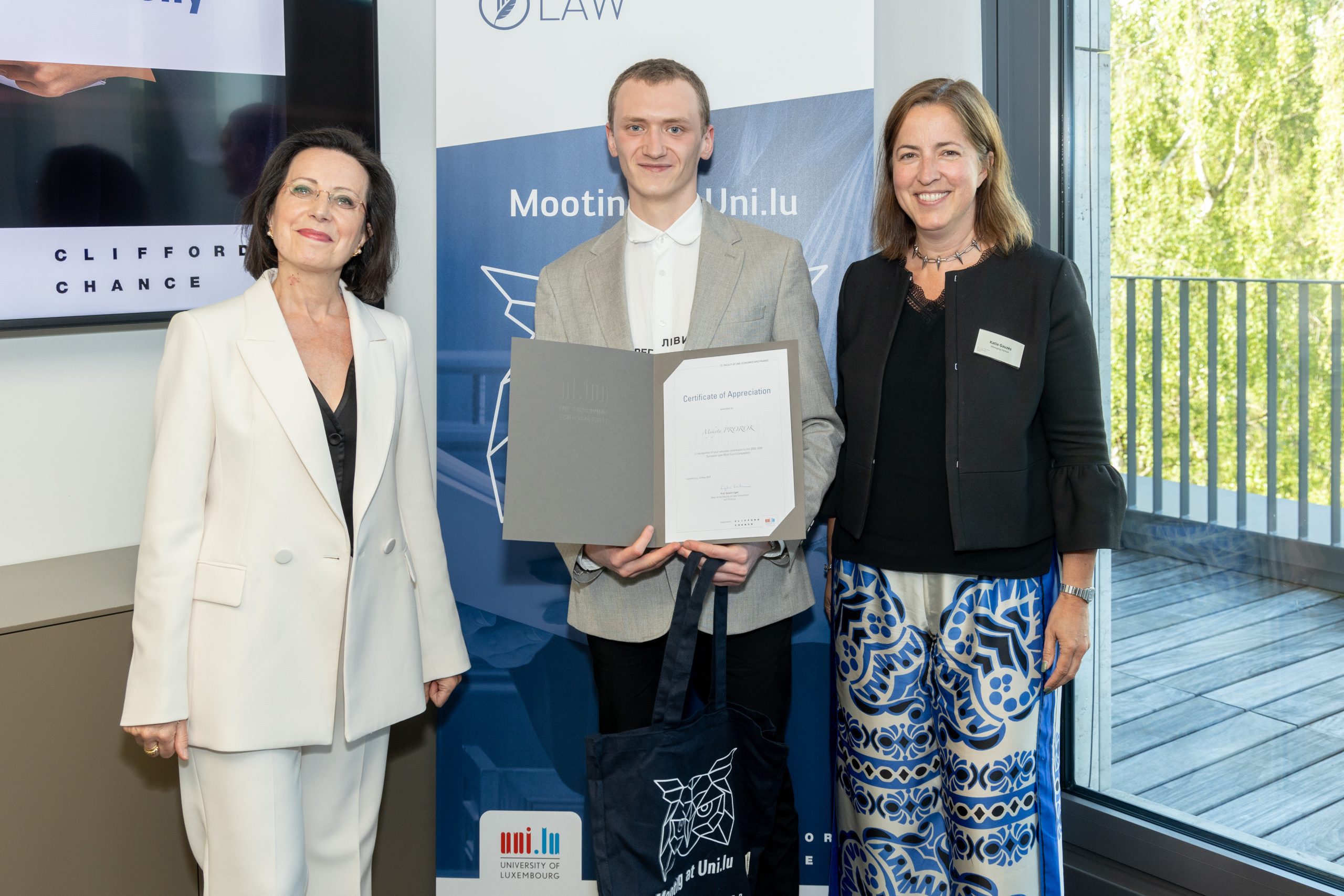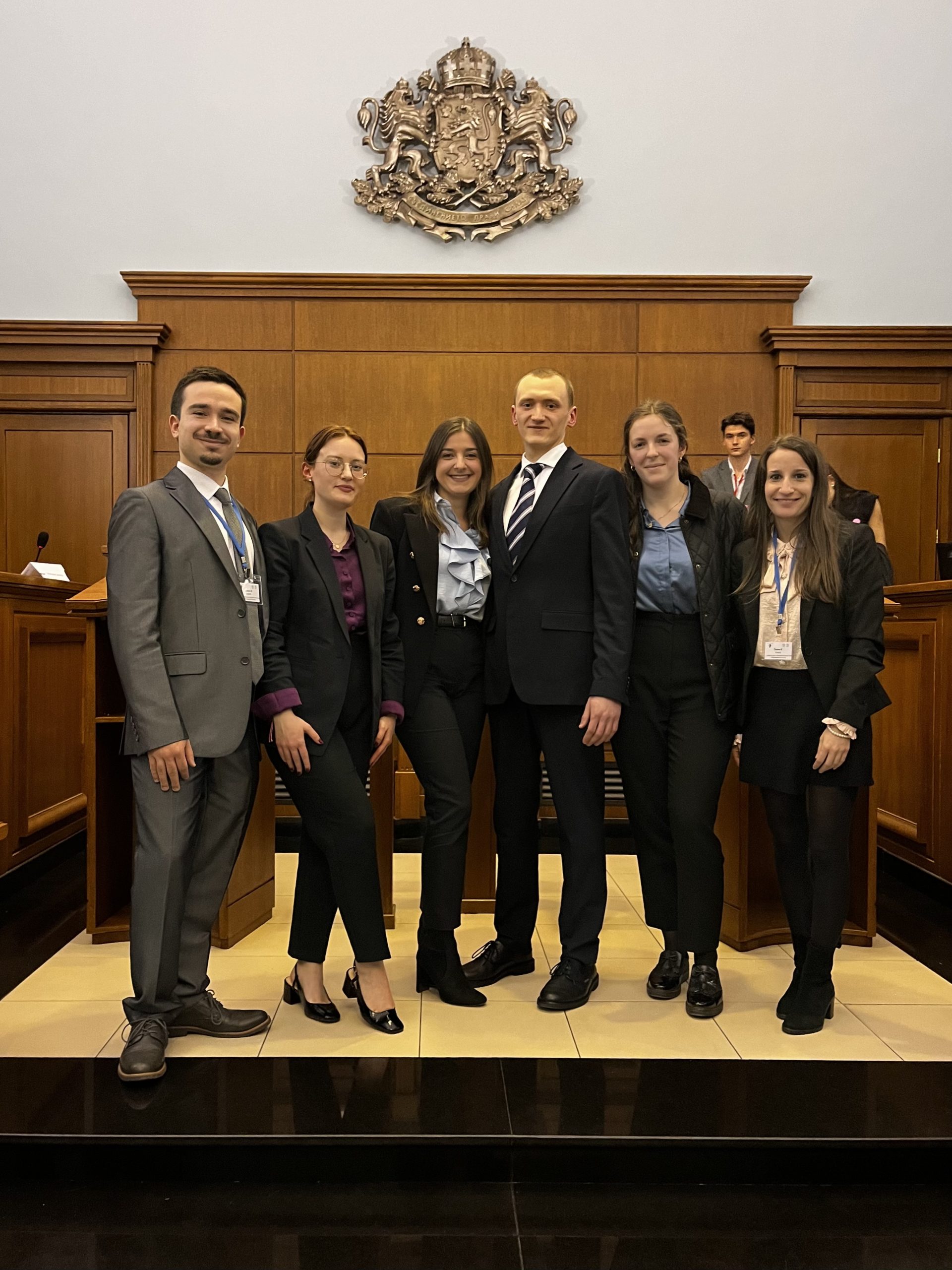Meet Mykyta Prorok, a recent graduate with a Master en Droit bancaire et financier européen (Class of 2025), and a young legal professional who has just embarked on a promising career in Luxembourg’s legal sector. After beginning his studies in France, Mykyta chose to pursue both his Bachelor’s and Master’s degrees at the University of Luxembourg, drawn by its unique multilingual and comparative approach to law.
Today, he is building his career at our partner firm Clifford Chance, one of the largest international law firms, where he first gained professional experience through internships while studying at the Faculty. We spoke with Mykyta about his academic journey, the impact of internships and the Moot Court Programme on his development, and how the University prepared him for a career in the dynamic field of banking and financial law.
What motivated you to pursue your Bachelor’s and later Master’s studies at the University of Luxembourg after starting your degree in France?
It is quite common for students to begin studying law in France, given that Luxembourg’s legal system has its roots in the French system, and French legal education has a long-standing tradition and deep historical foundations.
I chose the University of Luxembourg because it offers a unique opportunity to study law from national, European, and international perspectives in several languages. This multilingual and comparative approach not only enriches legal understanding but also reflects the realities of today’s global legal environment. The University equips its graduates with the flexibility to pursue a career both within Luxembourg, where many EU and financial institutions are based, and abroad.
How would you compare the academic approaches and teaching methods of these two countries?
In France, the focus tends to be more on theoretical aspects of the law, with structured lectures and less room for debate or challenging the professor’s perspective. In contrast, I preferred the University of Luxembourg’s approach, which places greater emphasis on practical application, interactive learning, and active participation in class discussions. Students are encouraged to engage critically, defend their own points of view, and consider legal issues from multiple national, European, and international perspectives. I believe this very approach is essential to prepare a new generation of lawyers in such an interconnected and fast-changing world we live in today.
You participated in Moot Court. What did this experience teach you?
Indeed, it was an incredible experience because it allowed me to see how legal principles are applied in practice and even to plead before a real court. Naturally, it required mastering the subject from a legal perspective while also developing strong oral advocacy skills. But most importantly, it taught me the value of teamwork, since success in moot court depends on collaboration, preparation, and team spirit.

Mykyta during the moot Court Ceremony 2024 with Dr. Susana Muñoz, Moot Court Programme Coordinator and Katia Gauzès, Managing Partner at Clifford Chance Luxembourg
You gained experience at Clifford Chance through internships before starting as a trainee lawyer there. How did these internships prepare you for your current role? Was it easy for you to find a job after finishing your Master?
It was an honour to start at Clifford Chance as an intern and later return as a trainee lawyer in one of the world’s leading law firms. Those first internships were essential for me to see how law is applied in practice, beyond the academic perspective. They helped me understand the dynamics of working in a top-tier firm and confirmed my ambition to pursue a career as a financial lawyer. I truly believe that internships are indispensable for any law student aspiring to the profession.
Finding a job after my Master en Droit bancaire et financier européen was facilitated by the strong links the University of Luxembourg maintains with the legal market. The University regularly organises career fairs, firm presentations, and open days, which create direct contact with employers. Since the Uni.lu is the country’s main higher education institution, law firms actively follow its graduates and compete to recruit them. This network and visibility make the transition into the job market much smoother for their alumni.
Looking back at your Master’s, which courses or skills proved most useful in your professional life so far?
The courses throughout my studies were particularly valuable, as they gave me a solid understanding of the regulatory framework I now apply in practice. Beyond the technical knowledge, what proved equally useful were the analytical and problem-solving skills I developed through case studies and research projects. Yet, the most important skill I gained was learning to work effectively with people from all around the world, which is especially valuable in Luxembourg’s multicultural professional environment.

Mykyta’s team for the European Law Moot Court Competition (ELMC) at the 2025 Preliminary Round in Sofia, Bulgaria
You were awarded the Portabella Foundation Scholarship. Could you share how this impacted your studies and/or professional development?
Receiving the Portabella Foundation Scholarship was a great support, as it allowed me to fully dedicate myself to my studies without the added pressure of financial constraints. This was especially valuable during intensive academic periods when balancing a student job would have been very difficult. Beyond the personal benefit, I also see this recognition as a sign of trust in the University of Luxembourg, highlighting its innovative learning environment and its strong values of meritocracy and academic rigour.
What advice would you give to current law students who want to work in banking and financial law?
My advice would be to stay open-minded and curious, because this field is a vast and constantly evolving branch with nearly limitless areas to explore. It’s important to continue learning something new every day and to develop both technical knowledge and practical skills. At the same time, start building your professional network early, as relationships and connections are key to setting you up for a professional career.
